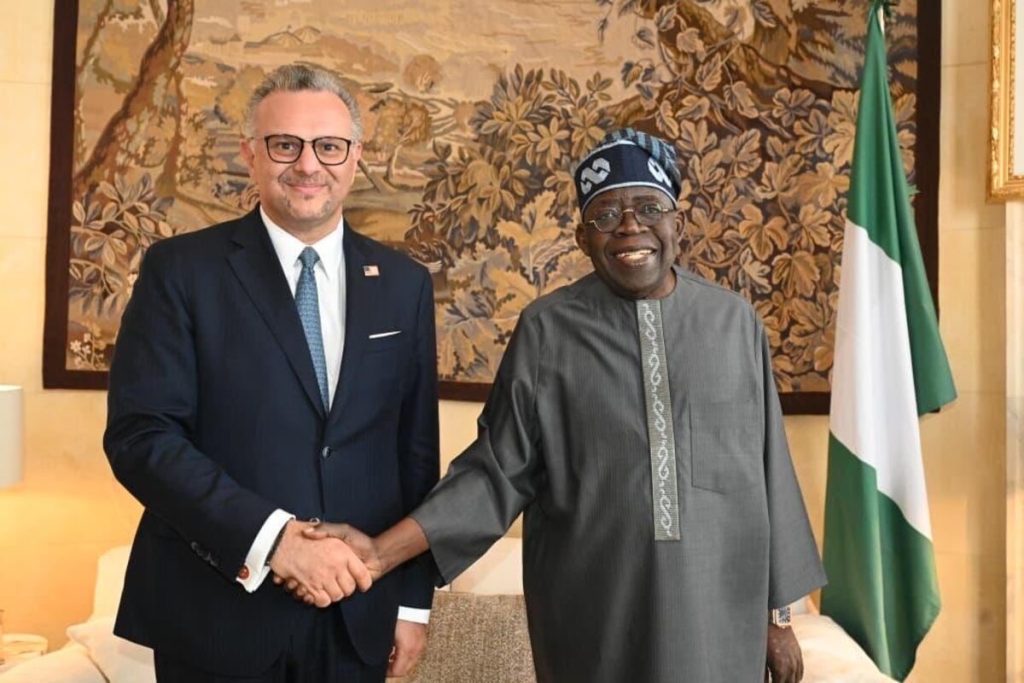
U.S. and Nigerian officials meet in Abuja to deepen security collaboration and promote bilateral trade. Image
U.S. and Nigeria Expand Security Collaboration in Sahel and Gulf of Guinea
Officials said the talks included a focus on close coordination on counterterrorism efforts in the Sahel, Lake Chad Basin and Gulf of Guinea, underscoring the joint commitment to stability and security.
The Sahel region has emerged as a major hotspot for violent extremist organisations, according to an analysis of Sahel threats.
Experts say the Lake Chad Basin remains under pressure from the insurgent groups of the region, including those operating across Nigeria’s borders.
By focusing on the Gulf of Guinea, the two governments aim to address maritime security risks and trafficking routes that feed regional instability.
Trade and Investment Added to Security Agenda
In the statement the U.S. official said that alongside security, the meeting emphasised expanding bilateral trade and creating a business-friendly environment to attract U.S. investment into Nigeria.
The move signals a shift toward linking economic growth with security cooperation in the region.
It reflects recognition that long-term stability in West Africa depends not simply on military or policing measures but also on economic and institutional development.
Deepening the U.S and Nigeria Relationship for Regional Prosperity
The U.S. and Nigeria reiterated their intention to turn their shared commitments into lasting progress on peace, security and prosperity across the region.
They highlighted Nigeria’s religious diversity, with the U.S. official noting Nigeria’s “deep-rooted Christian community” among other religious groups as part of its social fabric.
This acknowledgment of religious pluralism underscores the social dimension of the partnership beyond strictly military or economic concerns.
Operational Implications of the Security Accord
Security analysts note improved coordination could involve intelligence sharing, joint training, surveillance operations and increased U.S. support for Nigerian counterterrorism capabilities.
The U.S. Africa Command has previously emphasised that Africa remains a critical theatre for global security and that partnerships are central to countering threats. A Congressional hearing detailed U.S. counter-terrorism programmes in the region including Nigeria.
These programmes, such as the Trans-Saharan Counterterrorism Partnership, have included Nigeria among their partner countries. Historical context shows how long these ties have existed.
Challenges Ahead for U.S and Nigeria Amid Regional Instability
Despite the renewed commitment, the security landscape in the region remains fraught with risks including insurgent expansion, weak governance and difficult terrain.
The Gulf of Guinea faces increasing maritime threats including piracy and illicit trafficking, which compound regional insecurity.
In the Sahel and Lake Chad Basin, extremist groups have exploited porous borders and fragile states to gain influence and operate unimpeded.
The U.S.–Nigeria agreement comes at a time when regional cooperation is vital to prevent these threats from spreading further.
Economic Dimensions of the Partnership
Linking trade and investment with security cooperation reflects a strategy aimed at creating incentives for stability rather than relying solely on enforcement.
By developing Nigeria’s business climate and attracting U.S. capital, officials believe the region can build resilience against extremism through opportunity rather than force alone.
The long-term growth narrative advanced by the U.S. official emphasises that prosperity and security are mutually reinforcing rather than separate goals.
Outlook for U.S and Nigeria Joint Effort
Both countries will now move to translate the broad vision of their meeting into operational plans, metrics and institutional mechanisms to monitor progress.
The success of this deepened partnership will depend on sustained political will, resource allocation and effective implementation on the ground.
Related: UK conservation lab expands breeding of amphibians and reptiles for wild reintroduction
Should this partnership yield concrete results, it may serve as a model for other regional states seeking to integrate security and economic strategies.
Reporting by James, editing by Greg Mascot, Epicstorian News.




